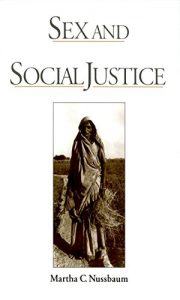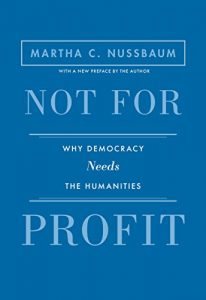What does it mean to respect the dignity of a human being? What sort of support do human capacities demand from the world, and how should we think about this support when we encounter differences of gender or sexuality? How should we think about each other across divisions that a legacy of injustice has created? In Sex and Social Justice, Martha Nussbaum delves into these questions and emerges with a distinctive conception of feminism that links feminist inquiry closely to the important progress that has been made during the past few decades in articulating theories of both national and global justice.
Growing out of Nussbaum's years of work with an international development agency connected with the United Nations, this collection charts a feminism that is deeply concerned with the urgent needs of women who live in hunger and illiteracy, or under unequal legal systems. Offering an internationalism informed by development economics and empirical detail, many essays take their start from the experiences of women in developing countries. Nussbaum argues for a universal account of human capacity and need, while emphasizing the essential role of knowledge of local circumstance. Further chapters take on the pursuit of social justice in the sexual sphere, exploring the issue of equal rights for lesbians and gay men.
Nussbaum's arguments are shaped by her work on Aristotle and the Stoics and by the modern liberal thinkers Kant and Mill. She contends that the liberal tradition of political thought holds rich resources for addressing violations of human dignity on the grounds of sex or sexuality, provided the tradition transforms itself by responsiveness to arguments concerning the social shaping of preferences and desires. She challenges liberalism to extend its tradition of equal concern to women, always keeping both agency and choice as goals. With great perception, she combines her radical feminist critique of sex relations with an interest in the possibilities of trust, sympathy, and understanding.
Sex and Social Justice will interest a wide readership because of the public importance of the topics Nussbaum addresses and the generous insight she shows in dealing with these issues. Brought together for this timely collection, these essays, extensively revised where previously published, offer incisive political reflections by one of our most important living philosophers.
Growing out of Nussbaum's years of work with an international development agency connected with the United Nations, this collection charts a feminism that is deeply concerned with the urgent needs of women who live in hunger and illiteracy, or under unequal legal systems. Offering an internationalism informed by development economics and empirical detail, many essays take their start from the experiences of women in developing countries. Nussbaum argues for a universal account of human capacity and need, while emphasizing the essential role of knowledge of local circumstance. Further chapters take on the pursuit of social justice in the sexual sphere, exploring the issue of equal rights for lesbians and gay men.
Nussbaum's arguments are shaped by her work on Aristotle and the Stoics and by the modern liberal thinkers Kant and Mill. She contends that the liberal tradition of political thought holds rich resources for addressing violations of human dignity on the grounds of sex or sexuality, provided the tradition transforms itself by responsiveness to arguments concerning the social shaping of preferences and desires. She challenges liberalism to extend its tradition of equal concern to women, always keeping both agency and choice as goals. With great perception, she combines her radical feminist critique of sex relations with an interest in the possibilities of trust, sympathy, and understanding.
Sex and Social Justice will interest a wide readership because of the public importance of the topics Nussbaum addresses and the generous insight she shows in dealing with these issues. Brought together for this timely collection, these essays, extensively revised where previously published, offer incisive political reflections by one of our most important living philosophers.












